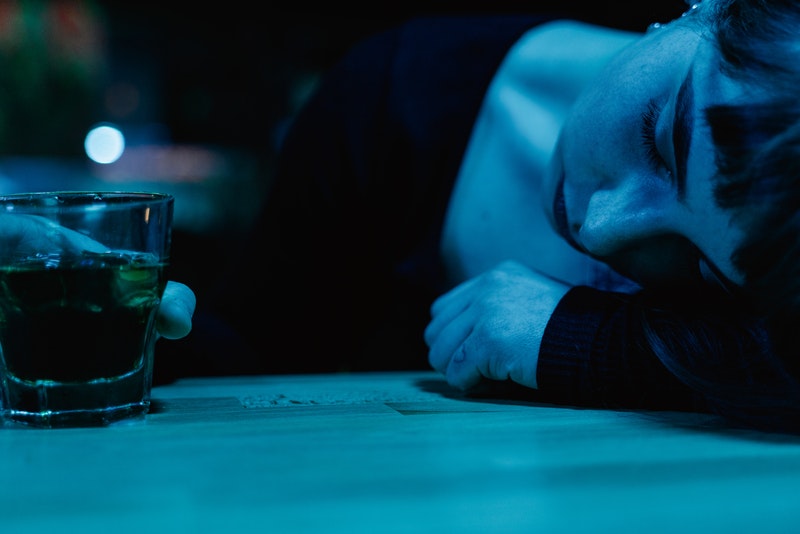DUI and DWI cases are serious and can come with severe consequences when not properly handled. Working with an experienced criminal defense lawyer can help you fight a DUI charge and in some situations can even help you to get your case dismissed.
The goal of hiring a lawyer is ensuring that you do not walk away with a criminal record that can come back to haunt you in the future. Attorney Lanease Fuller offers legal advice and defensive strategy that will help you navigate your case, while truing to avoid all jail time.
Listed below is some insight into how a driving under the influence charges can affect you and how your court dates will go:
What the Prosecution Must Prove for a DUI Conviction
In a DUI case, the prosecution must prove the person being charged (the “defendant”):
- drove a vehicle, and
- was “under the influence”—meaning the person was either impaired or had a prohibited amount of drugs or alcohol in his or her body.
Many DUI defenses target one of these two components because the prosecution must prove both to get a conviction. The defenses available to a DUI defendant depend—to some extent—on state DUI laws. But this article gives an overview of some DUI defenses that are available in most states.
Defenses Related to “Driving”
In some states, you can’t be convicted of a DUI unless you were actually driving a vehicle. So, if you were asleep in a parked vehicle in one of these states when police arrived, you probably have a good defense.
But most states don’t require proof of actual driving for a DUI conviction. All the prosecution needs to prove is that you were “operating” or “in actual physical control” of a vehicle while intoxicated. In other words, you can be found guilty even if you weren’t caught behind the wheel with the car in motion.
Defenses Related to Driver Intoxication or Impairment
Evidence of driver intoxication comes in various forms. However, in many cases, there are chemical test results showing how much alcohol and drugs the driver had in his or her system. It’s also common for the police officer who made the arrest to testify at trial regarding observation of the driver’s impairment.
Challenging Chemical Test Results
Because it’s illegal to drive with a blood alcohol concentration (BAC) of .08% or more (.05% or more in Utah)—called a “per se DUI”—chemical test results alone can prove the intoxication component a DUI charge.
When challenging alcohol- or drug-test results, you’re typically either saying the results are unreliable because of some flaw in the testing procedure or represent an inaccurate measurement of the amount of drugs or alcohol at the actual time of driving. Defenses related to chemical test results might require the testimony of an expert witness.
Challenging the Officer’s Testimony Regarding Your Behavior
For proving a DUI based on actual impairment (as opposed to the amount of drugs or alcohol in the driver’s system), the officer’s observations can be an important part of the prosecution’s case. An officer’s observations of impairment might include:
- poor (field sobriety test) FST performance
- the odor of alcohol
- bad driving
- bizarre behavior
- slurred speech, and
- bloodshot eyes.
To beat a DUI charge, the defense might need to challenge the significance of an officer’s observations. It just depends on the circumstances, but it can be difficult to convince jurors that the officer’s conclusions about the driver’s intoxication were wrong.
Introduce Witnesses Who Saw Things Differently
One way to challenge an officer’s observations is to bring in witnesses who were present when you were arrested and saw things differently than the officer. Unfortunately, in many cases, there aren’t any witnesses. Or, if your witness was a passenger in your car, the prosecution might argue that your witness is biased.
Offer Valid Explanations for Your Appearance and Behavior
For some officer observations, you might be able to provide an explanation—other than intoxication—for what happened. For example, fatigue and physical disabilities can lead to poor FST performance. And bloodshot eyes can be caused by allergies and other irritants.
Defenses Related to Arrest Procedures
When police don’t use proper arrest procedures, it can sometimes provide you with a good defense to a DUI charge. Defenses related to arrest procedures typically involve arguing that—because police didn’t follow the law when stopping or arresting you—the judge should throw certain evidence out.
No Probable Cause for Arrest
Generally, police need probable cause to stop your vehicle, and if they’re going to arrest you for a DUI, they need probable cause for that too. For the traffic stop, police have probable cause if there’s reason to believe the driver or someone else in the vehicle has broken the law. (DUI checkpoints and roadblocks are, however, an exception to the probable cause rule.) Basically, any traffic violation will suffice. But if the police pull you over without a legitimate reason, a judge is likely to say all the evidence subsequently obtained is inadmissible in court.
A valid traffic stop doesn’t necessarily make a DUI arrest proper—the officer must also have reason to believe the motorist was in violation of the state’s DUI laws. Probable cause for a DUI arrest usually comes from the officer’s observations and sometimes breath-test results. Both forms of evidence can be tricky to challenge. An officer might say you performed poorly on FSTs, smelled of alcohol, and had slurred speech. For most judges, that would be enough evidence for probable cause. And in most situations, breathalyzer results showing your BAC was over the limit are going to make challenging probable cause an uphill battle.
No Miranda Warnings
Occasionally, Miranda warnings come into play in DUI cases. Police are generally required to give Miranda warnings prior to questioning a suspect who’s in police custody. So, if a DUI suspect who’s in police custody and hasn’t been given Miranda warnings makes an incriminating statement in response to police questioning, the statement probably can’t be used in court against the suspect.
Experienced DWI Attorney in Houston, Texas
Attorney Fuller is a seasoned attorney with nearly three decades of experience representing a wide range of clients. This includes individuals who have suffered an injury due to another’s actions, individuals facing criminal charges, those who have been arrested for DWI, individuals who have found themselves in a civil litigation dispute, and those looking for legal guidance in business.
After filling out a client intake form, Attorney Lanease D. Fuller will take appropriate action in your case to help you get the results you are looking for. This includes but not limited to gathering evidence, going to trial, and earning a settlement that is appropriate for your specific situation. Reach out to us today to take the first step towards settling your case.
LANEASE D. FULLER LAW
4615 S. Frwy St. 820
Houston, TX 77051
713-439-7400
Google Listing


